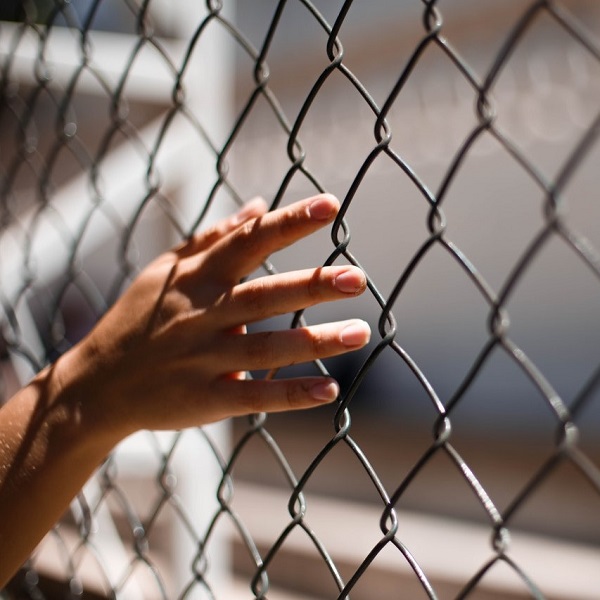PrisoninPandemic
Serving a sentence of imprisonment during the pandemic – problems and challenges

Developing a catalogue of prison rules that should be implemented in the event of an epidemic by determining which restrictions are necessary and which can be abandoned, or replaced with other forms of social relations. Examining how to rebuild inmates’ possibilities to contact the outside world under the strict sanitary regime.
keywords: pandemic, prisoners, COVID-19, inmates, imprisonment sentence
The COVID-19 pandemic has profoundly affected people’s lives around the world. One of the groups most heavily affected by the pandemic restrictions are inmates. The necessity of introducing a strict sanitary regime in prisons was not surprising due to the risk of spreading the virus in penitentiary units. Therefore, it is not surprising that in order to ensure the safety of prisoners and employees, the administration of prisons tried to limit the number of people entering the prisons by suspending the visitations of relatives, therapists, teachers, priests, and excluding external employment. Certainly, these methods did manage to limit the spread of the virus. The question is whether such a high price for health was necessary and justified or whether that goal could not be reached in another way.
Once the sentence has been served, inmates will eventually return to their environments. It is in the interest of the entire society that inmates leave their penitentiary units as better people than they were at the moment of committing a crime. The pandemic does not facilitate such a solution, especially by limiting contact with the outer world, suspending visitations, courses, or therapies. Thus, it seems essential to develop a catalogue of prison rules that should be implemented in the event of an epidemic by determining which restrictions are necessary and which can be abandoned, or replaced with other forms of social relations, and finally, how to rebuild inmates’ possibilities to contact the outside world under the strict sanitary regime.
PROJECT LEADER
ANNA JAWORSKA-WIELOCH, PhD

Photo from the gallery of Anna Jaworskia-Wieloch, PhD
Anna Jaworska-Wieloch, PhD
Institute of Law
e-mail: anna.jaworska-wieloch@us.edu.pl
- Anna Jaworska-Wieloch, PhD, Faculty of Law and Administration, University of Silesia, law
- Olga Sitarz, PhD, DLitt, Assoc. Prof., Faculty of Law and Administration, University of Silesia, law
- Wiola Friedrich, PhD, Faculty of Social Sciences, Institute of Psychology, University of Silesia, psychology
- Andrzej Czerkawski, PhD, Faculty of Social Sciences, Institute of Pedagogy, University of Silesia, education
- Katerina Yocheva, PhD, Assoc. Prof. of New Bulgarian University, Bulgaria, law
- Deyana Marcheva, PhD, Assoc. Prof. of New Bulgarian University, Bulgaria, law
- Libor Klimek, Doc. JUDr. et PhDr. mult., PhD, University Matej Bel, Banska Bystrica, Slovakia, law
- Juhász Zsuzsanna, PhD, DLitt, University of Szeged, Hungary, law
More about the project

Photo from Pexels.com
popular science article
How has the pandemic affected inmates’ lives?
Silesian Research | 15 June 2022
Due to the coronavirus pandemic, the entire world introduced numerous restrictions to counteract the spread of the harmful virus. Schools were closed, remote work was introduced, facemasks and keeping social distancing were recommended. The restrictions affected each of us, including inmates in penitentiary units. During the pandemic, various types of correctional practices were suspended, e.g. addiction treatments, psychology sessions, masses, and vocational courses.…
News
19 April 2022
Intensive work is underway on collecting data on restricting the operation of prisons due to the pandemic.
RESEARCH EXCELLENCE INTIATIVE
presents
Meet the laureates of the Research Excellence Initiative calls for proposals “Green Horizon” and “Post-COVID Horizon”.
The research project: Serving a sentence of imprisonment during the pandemic – problems and challenges
Grant amount: PLN 45,096
PROJECT LEADER

Photo from the gallery of Anna Jaworskia-Wieloch, PhD
Anna Jaworska-Wieloch, PhD
Institute of Law
e-mail: anna.jaworska-wieloch@us.edu.pl
- Anna Jaworska-Wieloch, PhD, Faculty of Law and Administration, University of Silesia, law
- Olga Sitarz, PhD, DLitt, Assoc. Prof., Faculty of Law and Administration, University of Silesia, law
- Wiola Friedrich, PhD, Faculty of Social Sciences, Institute of Psychology, University of Silesia, psychology
- Andrzej Czerkawski, PhD, Faculty of Social Sciences, Institute of Pedagogy, University of Silesia, education
- Katerina Yocheva, PhD, Assoc. Prof. of New Bulgarian University, Bulgaria, law
- Deyana Marcheva, PhD, Assoc. Prof. of New Bulgarian University, Bulgaria, law
- Libor Klimek, Doc. JUDr. et PhDr. mult., PhD, University Matej Bel, Banska Bystrica, Slovakia, law
- Juhász Zsuzsanna, PhD, DLitt, University of Szeged, Hungary, law





